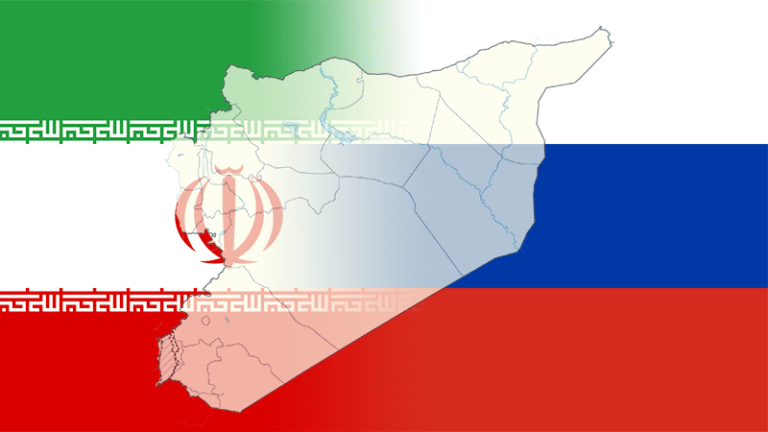
In a rare instance since the Russian intervention in Syria in September 2015, the policy differences between Moscow and Tehran have become public. This raised questions about Russia’s calculations vis-à-vis Iran and whether the two allies are entering a new phase in their cooperation in Syria.
During a meeting on May 17 with Syrian President Bashar al-Assad in Sochi, Russian President Vladimir Putin signaled two major policy shifts in Moscow’s approach to the Syrian war. He called for the withdrawal of “foreign armed forces” from the country and the formation of a Constitutional Committee under the United Nations-led Geneva talks to advance the Syrian political process. The next day, on May 18, the Russian presidential envoy Alexander Lavrentyev explained that to Putin, “foreign armed forces” include those from the United States, Turkey, Iran, and Hezbollah. In response, Iran’s foreign ministry spokesperson Bahram Qassemi told reporters on May 21 that “no one can force Iran to do anything” and noted that Iranian forces will remain in Syria “as long as terrorism exists and the Syrian government wants.”
This public disagreement comes at a critical phase not only in the Syrian war but also elsewhere in the Middle East. The Syrian regime has now secured all the suburbs of Damascus and is looking to the south to reassert control over Daraa and Quneitra governorates. In mid-May, government troops also regained full control over the countryside of Homs governorate in central Syria. A week before, on May 8, US President Donald Trump withdrew the United States from the Iran nuclear deal and reimposed sanctions on the Islamic Republic. US Secretary of State Mike Pompeo issued an ultimatum to Tehran on May 21 to withdraw its forces from Syria. At this point, Turkey controls a buffer zone west of Jarablus and has strong influence over the Idlib governorate. In addition, US forces are in areas under Kurdish control in northeastern Syria as well as in the southeast around al-Tanf military base on the Iraqi-Jordanian border. Iran and its allies operate mostly between Damascus and the Syrian coast.
While Moscow’s call to withdraw all the foreign armed forces from Syria may not be implemented, it carries clear messages to those concerned. First, Putin is attempting to assert Russia’s control in postwar Syria, and this may be challenged by an equally assertive Iran. Second, this announcement comes after the May 9 meeting between Putin and Israeli Prime Minister Benjamin Netanyahu in Moscow, which coincided with Israeli strikes on Iranian bases inside Syria. To be sure, Moscow has been struggling to balance the rivalry between Israel and Iran after the collapse of the American-Russian ceasefire agreement in southwestern Syria. Third, Putin may be exploiting a vulnerable moment for Iran as it comes under increasing US diplomatic and economic pressure. In return, and as Tehran might need Moscow to contain this pressure, Putin might expect some concessions from Iran in Syria.
Fourth, this new Russian position of keeping a distance from Iran would help Moscow on two fronts: playing the Syrian card as leverage in any talks with the West, and helping Putin claim some credibility in moving the Syrian political process forward under UN sponsorship. After the military achievements on the ground, Moscow aims to forge and push through a constitutional amendment—a key demand in previous UN talks on Syria—which Putin hopes will lead to a political solution. However, there might be significant challenges ahead especially in an increasingly tense regional environment. The Syrian government also is likely to object to any constitutional amendments that could allow for Assad’s departure. And in response to Pompeo’s demand for Iran to withdraw from Syria, Damascus already said that the decision is its own to make.
Iranian influence is entrenched in Syria and inside the Assad regime itself. Both Moscow and Tehran are fully aware that any political or military confrontation they may have in the areas controlled by the Syrian regime would be detrimental to their interests. As US relations with Russia remain stagnant and Washington increases pressure on Iran, both Moscow and Tehran will continue to recognize that they would benefit more from cooperation rather than rivalry. Putin’s ultimate objective is to establish the rules of the game in Syria. However, the influential powers operating there have a lot at stake and will not surrender their prerogatives to Moscow while gaining nothing in return. Putin’s announcement, therefore, seems to be more of a political stunt and a notice to Iran that Moscow is ready to more forcefully assert its own influence in Syria over that of Tehran.

